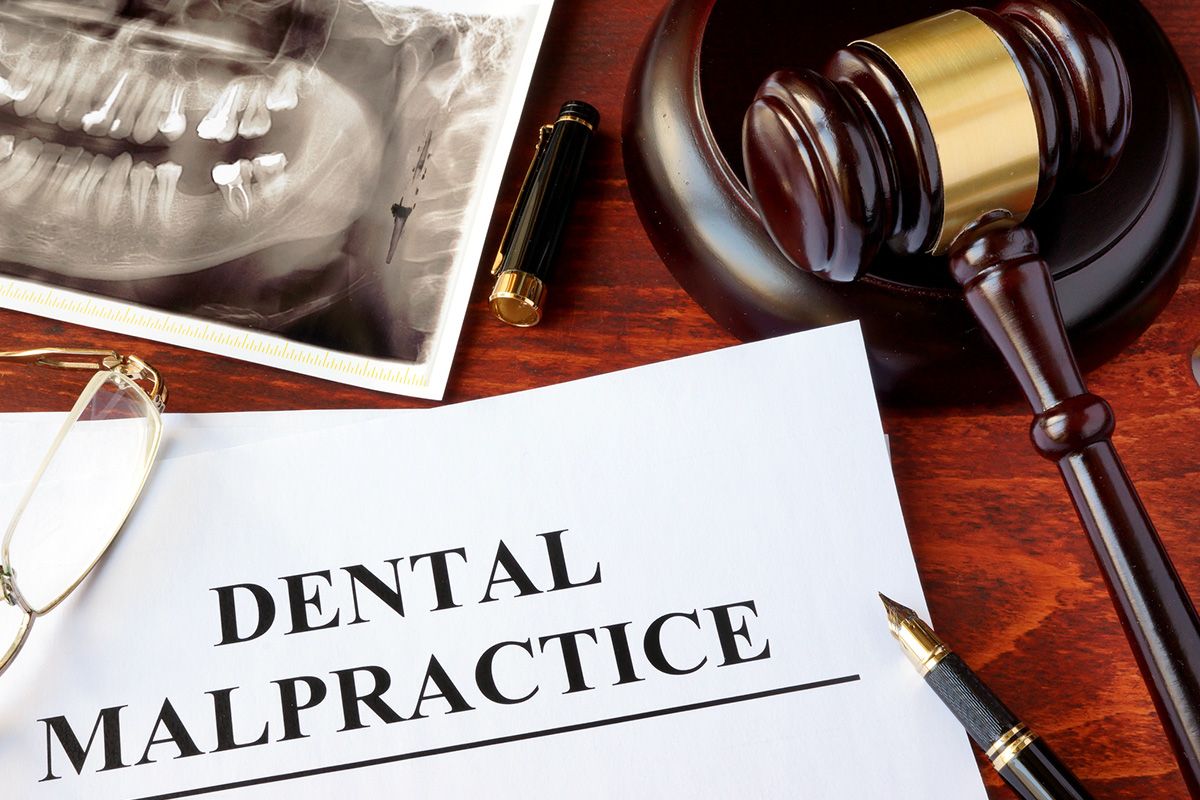What is Dental Malpractice?
Medical malpractice comes in many forms, including dental malpractice. Too few people know about what is involved in dental malpractice though and what exactly falls into this category. To help patients understand what is involved in dental malpractice, here is a quick guide.
What Qualifies as Dental Malpractice?
Dental malpractice can be classified as any type of action that leads to harm or death through a wrongful treatment, mistake during a procedure, or negligence on the part of a dental professional. There is no list of wrongful acts that lawyers, judges, and insurance companies consult to know if a case falls under dental malpractice. Some examples could include:
- Improper tooth extractions
- Failure to notice and treat oral health problems
- Adverse reaction to dental drugs
- Injuries to oral nerves
- Infections
- Complications from anesthesia or Novocain
- Problems from tooth extractions
- Wrongful death
With these problems, there are a wide variety of potential side effects. Some of these include:
- Nerve damage: This can be caused from improper tooth extraction, root canals, and jaw fractures. It results in limiting the ability to feel and use the nerves in the mouth which make all the functions, including eating, speaking, tasting, and differentiating between hot and cold.
- Trigeminal neuralgia: A chronic pain condition in the trigeminal nerve. This nerve is responsible for stimulating the face and carrying sensations from the face to the brain. When the nerve is compromised, the pain can come from chewing, brushing teeth, and speaking.
- Mouth cancer: Dentists are trained to spot tumors in the mouth and if they fail to do so, the result can be mouth cancer.
- Loss of teeth: Failure to treat teeth that require root canals, a faulty root canal, or damaging the teeth during routine dental work can lead to tooth loss. Replacing even a single tooth can be an expensive and painful process.
- Expensive replacement dental work: Fixing bad dental work is often more expensive than the original dental procedures. Even if teeth are not lost, fixing mistakes can take a lot of time and compromise the integrity of the tooth structure, causing more problems down the road.
- Pain and suffering: Since the mouth is so sensitive, extra dental problems can cause a lot of pain. Because the mouth is used for so many essential, everyday functions, dealing with dental problems can cause a lot of suffering.
Again, the possible situations that could be considered dental malpractice are not confined to this list. Each case is examined to see if mistakes were made and if there was any type of injury or neglect because of those mistakes.
Do You Have a Case?
If you or a loved one has experienced some type of injury from a dentist, contact a personal injury lawyer. Waiting too long can limit your ability to get compensated for the problems you have experienced. Even if you aren’t sure if you have a case, it is best to get a consultation on your situation. Our dental malpractice lawyers in NYC have a lot of experience in identifying dental malpractice and can help determine the potential of your case.





